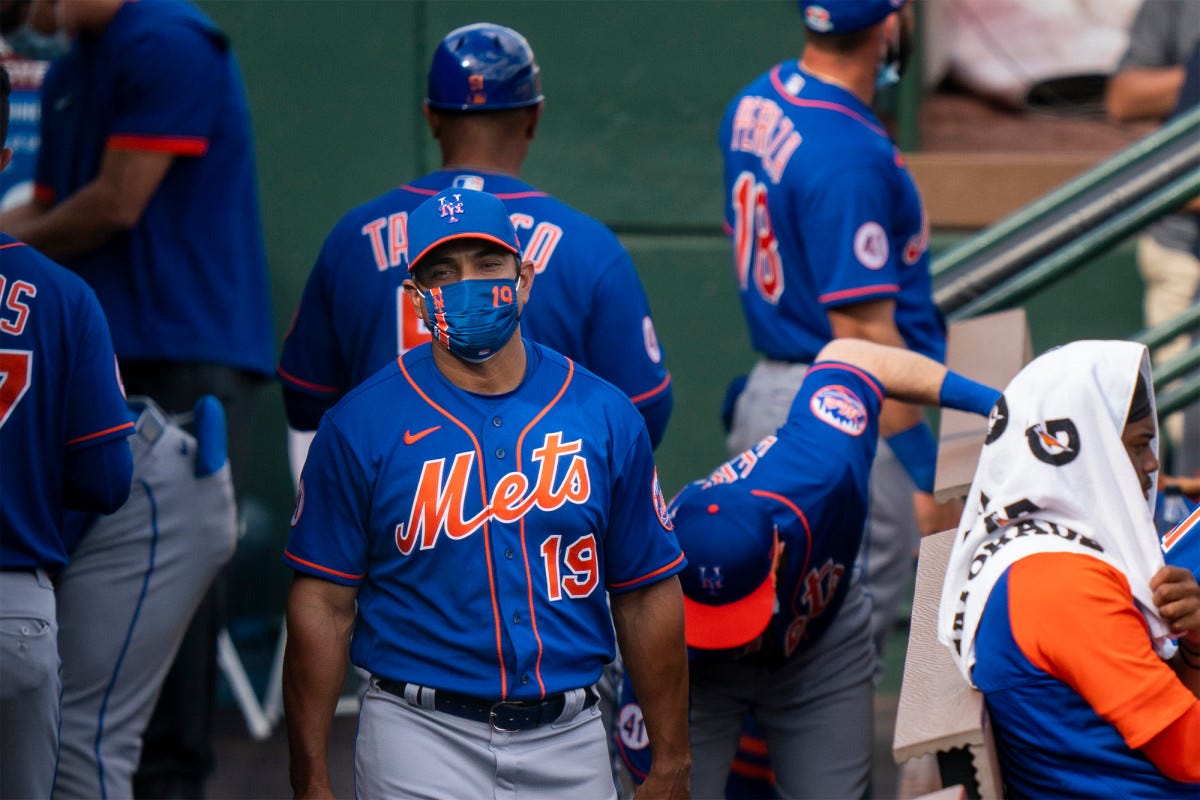House of Cards
A baseball season is a process that's designed to be disappointing sometimes. Think about that while making complaints.
If you build a house of cards, eventually it’s going to collapse. Actually, that’s the point of a house of cards: it falls apart easily. If it didn’t — if you weren’t intentionally building something that was hard to build — who would build a house of cards? You could just use wood and brick, and you’d have a far sturdier house, and one that didn’t constantly make you think of the time when you were playing blackjack and could have split aces, but stubbornly decided not to.
The whole point of a house of cards, in other words, is that it’s not a sure thing. The difficulty of building one makes a successful house of cards all the more rewarding. Builders of a house of cards intentionally take on a much higher risk of failure, because they know that risk makes success far more meaningful.
Of course, problems arise when you start building a house of cards without knowing that failure is built into the equation. If your mindset at the beginning of card-house construction is “I can’t wait to have a finished house of cards,” and not “this house might fall apart, but I hope it doesn’t,” then you’re immediately set up for disappointment. The process isn’t designed to be successful 100% of the time, and if you’re building a house of cards, you should understand from the start that the house falling down doesn’t reflect a failure on your part, and it doesn’t mean you need to overhaul your entire house-building system. It’s just the way things are supposed to happen. If you don’t understand thaat, the house falls and you’re left shocked and indignant, rather than simply aware that this happens sometimes. You blame the wind or your shaky hands, without realizing that there’s no need to blame anyone, because this is just the way things work.
This isn’t existential despair; this is — maybe you guessed it — about the Mets. I’ve noticed something about Mets fans recently: a significant number of them don’t seem to understand that Mets fandom is far more like building a house of cards than a house of brick and mortar. There’s always a risk, in Mets fandom, that things will fall apart and the Mets will be disappointing. That’s a feature, not a bug. If you want a hobby with a higher success rate, steer clear of the four major sports, all of which involve 30-something teams competing for a single championship.
Contemporary baseball discourse would be so vastly improved if all baseball fans could accept the absolutely undeniable reality that sometimes you lose, and there’s absolutely nothing anyone can do about that. The most successful teams in baseball history lose almost enough games to fill three complete NFL seasons. A bad game doesn’t mean that the owner has given up, or that the pitching coach needs to be fired, or that the bullpen needs to be replaced en masse, or that the manager is in over his head. Bad games just happen sometimes, and all you can do is hope that tomorrow’s game is better.
As the Mets got swept by the Tampa Bay Rays, the floodgates opened and the complaints flowed. Joey Lucchesi isn’t an MLB pitcher! How could Luis Rojas not even have anyone warming up to start the eighth? Why would he use James McCann as the DH? Why weren’t the Mets guarding the line up 2-1 in the eighth inning on Friday night?
Obviously, there are some circumstances in which these complaints would be completely legitimate. In a world in which Lucchesi had thrown a lot more than 15.1 innings so far this season...or Rojas had had any better options to DH...or guarding the line had been an easy decision, and Rojas had just forgotten to call it...the complaints would make sense. But in this case, they don’t.
Take Friday. Rojas caught endless flak from fans for not having anyone warming up to start the eighth inning, even though David Peterson was cruising and had only thrown 83 pitches and was facing the bottom of the order, and Rojas took Peterson out after three batters and Trevor May still gave up an RBI double when he came in. Bad choice, or bad outcome? The choice seems fine. For fans, there are two choices. You can fault Rojas for the sin of getting his reliever — who still didn’t pitch well — warmed up three minutes later than he should, or you can understand that Rojas made a fine choice that happened not to work out. That happens sometimes: fine choices don’t work out, because baseball seasons aren’t designed for each team to succeed all the time. Fans who don’t understand that are building unwitting houses of cards, yelling at the wind as their house falls down again.


